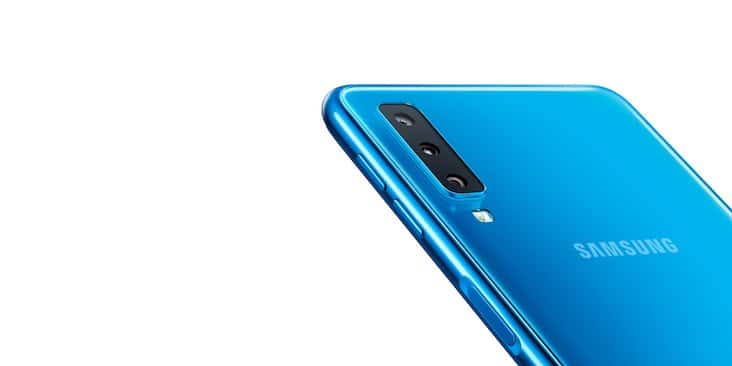The easiest method to fix slow charging issue on Galaxy A7 2018: Is your Galaxy A7 2018 charging slower than usual? If yes, then don’t worry, we have got the fix for you. Recently, the latest flagship of Galaxy Note line up, the Galaxy A7 2018 was launched. Ever since their launch, the users have been busy pre-ordering these devices or making arrangements to buy them in the coming days. The new device comes with Android 8.1 Oreo firmware and has exciting lists of specifications and features respectively. However, since no Android is perfect, even these two come with flaws.
The Samsung Galaxy A7 2018 was a mid-range device from Samsung which comes with some decent specification. This is the first Samsung device to comes equipped with a triple rear camera. The phone comes equipped with a 6.00-inch touchscreen display. It also has a super AMOLED Full HD Plus Screen with 2220 x 1080 pixels screen resolution.
The Samsung Galaxy A7 2018 is powered by octa-core processor which is Samsung’s own Exynos CPU Primarily Clocked at 1.8 GHz. It is coupled with 4GB Of RAM and 64GB of internal storage that can be expanded up to 256GB via a microSD card. The Samsung Galaxy A7 2018 sports a triple rear camera setup (24MP + 5MP + 8MP) and a 24MP Front Camera. The device houses a 3300mAh non-removable battery. It runs Android 8.0 Oreo out of the box.
Apart from giving users some headaches regarding battery drainage, and Bluetooth connectivity, there is one more issue that has caused problems for the users. That issue is slow charging of the device. The issue of slow charging is minute and not problematic at all. It can be solved easily by making some adjustments to the device’s functioning and settings.
Today, in this post, we are going to give you numerous methods using which you can easily solve this issue of slow charging. First of all, users need to know what might be the reason for the problem. These are some of the steps which we have personally used on older Samsung phones and these steps worked out for us.
Possible ways to fix the slow charging issue on Galaxy A7 2018

Restart the device in safe mode
Restarting the device in safe mode will help the user determine if any third-party application is the reason for this problem. Once restarted, charge the phone and if it charges at normal speed, then you know the solution. Simply delete the newly installed apps to get rid of that particular application.
How To Boot Into Safe Mode On Samsung Galaxy A7 2018
-
Check the USB cable you are using for charging
One of the first attempts you make into finding the source of the problem should be to see if the problem is caused by the USB Cable. USB Cable should be kept clean and should not be bent or broken anywhere. Try to test that cable on any other device, if the other device also charges slowly, then you know the problem is with your USB cable and it needs to be changed.
-
Uninstall any third-party apps
Removing the third-party apps will help your device function faster and charge normally. Third-party apps often lead to the charging rate getting slowed down. If you have installed any third-party apps recently, then it is suggested that you start uninstalling them starting with the most recent ones. Once the apps that were disrupting the pace of charging are removed, the battery will charge at normal speed. To uninstall apps –
- Go to the Menu and select settings
- Tap on More and then click on Android Manager
- There, select the ‘Downloaded’ section, and select apps and tap uninstall
-
Close all background apps
One of the quickest fixes to the issue of slow battery charging is to close all background apps. The apps that are open in the background often slow down the charging rate of the device. It is suggested that you close them so that the RAM of your device is not used to support the apps in the background.
- You can easily bring up all the background apps by clicking and holding the home button before releasing it after you see the recently used apps
- Click on the ‘end all applications’ option in the task manager
- Click on ‘RAM’ option at the top of the screen